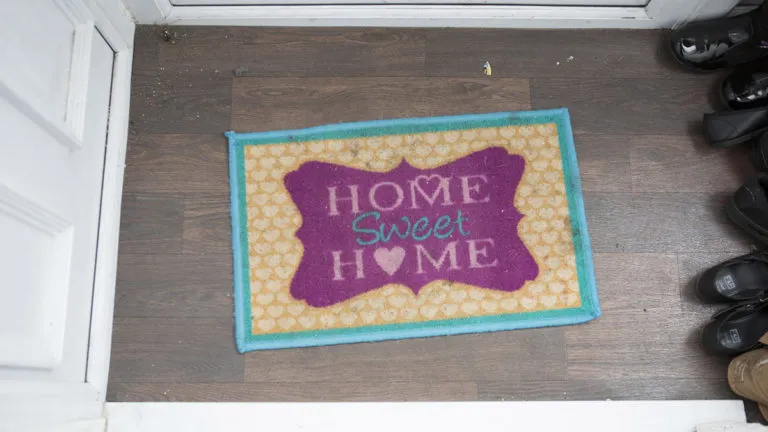The national housing emergency and Labour
Published: by Robin White

On 12 December, the United Kingdom will go to the polls in a general election for the third time in four years. One thing, however, is abundantly clear – that whoever the next government is, they will need to take radical steps to tackle our national housing emergency.
For the 1.1 million households on council waiting lists, the 277,000 people who are homeless in England, and the millions of families trapped in insecure private rentals, action can’t come soon enough.
To help us understand more about what each of the parties would do about this, on 4 December, Shelter, along with eight other organisations from the housing and homelessness sectors, will be hosting a National Housing Hustings with representatives from England’s major political parties.
Follow the action on social media using #housinghustings. This will be an opportunity for those who are experiencing the housing emergency to engage in the debate and hear the detail of what each party would do over the next parliament.
Ahead of the hustings, Shelter has produced short summaries of each party manifesto to highlight some of the key things we know already about their plans to tackle the housing emergency.
We are now two down and two to go in this series – and up next is Labour and their manifesto: It’s Time for Real Change.
Labour and housebuilding
In September, Labour’s Annual Conference voted unanimously to adopt a policy of delivering 155,000 new socially rented homes every year. In their manifesto, Labour has committed to 100,000 social rented council homes, and 50,000 homes built according to a new definition of affordable housing, one ‘linked to local incomes’. These will be delivered by councils and housing associations to create an overall target of 150,000 homes per year.
As we’ve said already in this series (and in many places elsewhere), social housing is vital to solving our housing emergency, and alongside others from across the housing and homelessness sector, we’ve highlighted that at least 90,000 social homes per year are needed over the course of the next parliament. And this represents a first step on the road to delivering the three million social homes over 20 years that our Independent Commission on Social Housing identified as being necessary to solving the national housing emergency.
Aside from their promises on social housing Labour has also set out a number of other relevant policies:
- changing the definition of ‘affordable’ housing and linking this to local incomes
- ending Permitted Development Rights which currently enable the conversion of office blocks into houses without going through the planning system
- ending the Right to Buy and the conversion of social homes into more expensive ‘affordable’ homes
- delivering more low-cost homes for first-time buyers – with details provided outside the manifesto that suggest these will include up to a 50% discount and will be secured from developers through the planning system
Labour and private renting
All political parties have made promises at the election to improve private renting, and Labour is no different. Their manifesto recommits the party to introducing open-ended tenancies through the abolition of Section 21 ‘no-fault’ evictions.
Ending Section 21 is something that Shelter and other organisations have long campaigned for, and was promised by the last government – although the legislation wasn’t brought forward before parliament was dissolved.
Labour’s policy platform for renters also commits to:
- nationwide landlord licensing to ensure mandatory minimum standards with tougher sanctions for landlords that fail to abide by the rules
- creating new renters’ unions across the country
- capping rent rises in line with inflation
- banning discrimination against those on housing benefit, often found in the form of ‘No DSS’ policies which Shelter maintains are already illegal under the Equality Act
- ending the Right to Rent regime in line with the judgement of the Supreme Court, which found it to be discriminatory
Many of these commitments clearly build on the work of housing campaigners over a number of years, however, further details around both the plans on renter’s unions and on capping rent rises will be key, should Labour move into government.
Labour and homelessness
Labour’s manifesto includes a commitment to end rough sleeping within five years.
To make their rough sleeping plan a reality, Labour is also committing to the establishment of a Prime Ministerial-led taskforce to ensure that priority is given to making this happen. This taskforce will likely oversee the implementation of such pledges as 8,000 additional homes for those with a history of rough sleeping, and the upgrading of hostels.
The manifesto also makes commitments to tackle the wider causes of homelessness by raising Local Housing Allowance (LHA) back to the 30th percentile of local rents, something we have also been calling for, and they set out other reforms to housing benefit:
- halting the roll-out of Universal Credit and ending the five-week wait for a first payment through the introduction of an interim payment, based on an estimated half of monthly entitlement
- scrapping the benefit cap and the bedroom tax
The National Housing Hustings
On Wednesday 4 December we will have the opportunity to find out more about how these pledges would be delivered at the National Housing Hustings, hosted by Centrepoint, Crisis, CPRE, Homeless Link, National Housing Federation, RIBA, RICS, Shelter, and St Mungo’s.
Housing spokespeople have been invited from the Conservative, Green, Liberal Democrats and Labour parties – the four parties that had an MP elected in England at the last general election.
Questions will come from people who have experienced the housing emergency first-hand, including those trapped in private renting, waiting for a social home and who have experienced the reality of homelessness.
If you want to make your voice heard at this election, ask your local candidates to commit to ending the housing emergency.